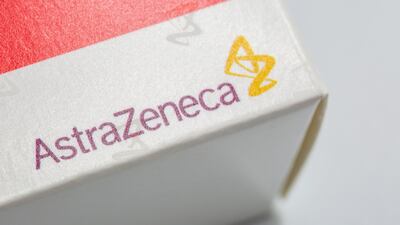Immuno-oncology
The US precision medicine company hopes its drug response predictor technology will enhance responses to the chemotherapy Ixempra on the basis of promising data from a handful of breast cancer patients in a Phase II trial, marking a positive turn in its journey to date.
Attendees at this year's European Society for Medical Oncology meeting in Barcelona can look forward to a range of interesting datasets, from Phase III trials of established products in new settings to preliminary studies of novel products coming through the pipeline.
Amgen’s Imdelltra for small-cell lung cancer is one of two bispecific T-cell engagers approved for solid tumors, but data at the WCLC meeting show other DLL3-targeting BiTEs may be on the way.
An academic study of GLP-1 agonist showed promise in patients with the painful skin condition but with no signs that the Danish drugmaker will pursue the indication, smaller players in the space may be interested.
AstraZeneca’s NIAGARA trial of perioperative Imfinzi in bladder cancer was positively received at the ESMO meeting but its design did not distinguish the contributions of each treatment portion to the overall effect – something that the US FDA is likely to have a view on.
Persistence has paid off for Incyte’s Zynyz in anal cancer with a Phase III win that should make up for a previous disappointment at the FDA and give a boost to the firm’s pipeline prospects for a post-Jakafi era.
An option fee from potential program acquirer TuHura has enabled Kineta to resume enrolling a Phase I/II study of a VISTA-targeted antibody that the company thinks has best-in-class potential.
AstraZeneca is working to bolster its PD-L1 agent’s applicability in resectable non-small cell lung cancer, seeking advantages versus Merck’s Keytruda and Bristol’s Opdivo.
The company plans an end-of-Phase II meeting with the FDA for VP-315, for which it announced positive Phase II data indicating potential as a frontline treatment.
Discontinuation of the AML study created concern about potential readthrough to a pivotal MDS trial, but the company and analysts pointed out differences in the diseases.
Francesco Hofmann, head of R&D at the mid-sized French group, tells Scrip that its strategy of not playing in the spaces that are dominated by big pharma is paying off.
Nemluvio is a first-in-class IL-31 inhibitor that the US FDA approved for prurigo nodularis.
The drug maker is spending up to $1.3bn to acquire rights to CN201, a CD19xCD3-directed bispecific antibody that it plans to develop for B-cell malignancies and autoimmune diseases.
If closed successfully, the traditional producer of active pharmaceutical ingredients and generic drugs will scoop up the world’s second advanced KRAS G12D-targeting T-cell receptor (TCR) T cell therapy candidate, as well as an EGFR variant III-targeting chimeric antigen (CAR) receptor T-cell agent. Out-licensing efforts are already under way.
Big biopharma is struggling to find the next generation of cancer immunotherapies, but the sector’s smallest companies might just have the platforms of the future.
The German biotech has unveiled a $150m series D financing round to support a “broad Phase IIb development program for visugromab” and explore its potential to induce cancer remission depth and durability across multiple solid tumor indications.
After missing statistical significance in PD-L1+ head-and-neck cancer, Immutep presents data showing eftilagimod with Keytruda can offer efficacy in PD-L1-negative patients.
It is not all over for Roche’s hopes for tiragolumab in frontline NSCLC but it may soon be.
AbbVie/Genmab’s anti-CD20 bispecific is the first subcutaneous drug in the class to win approval for FL, but despite that advantage, doctors may pick the drug they know best.















